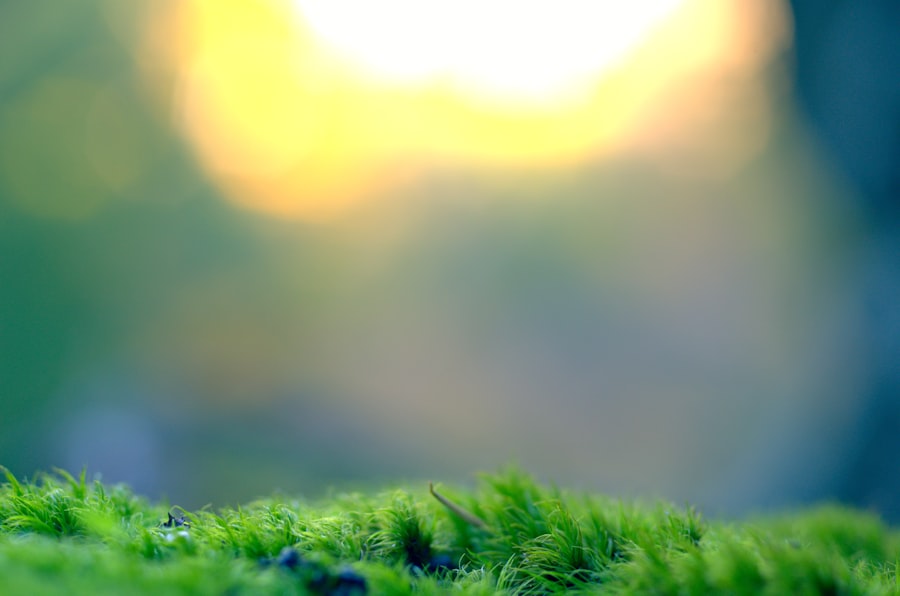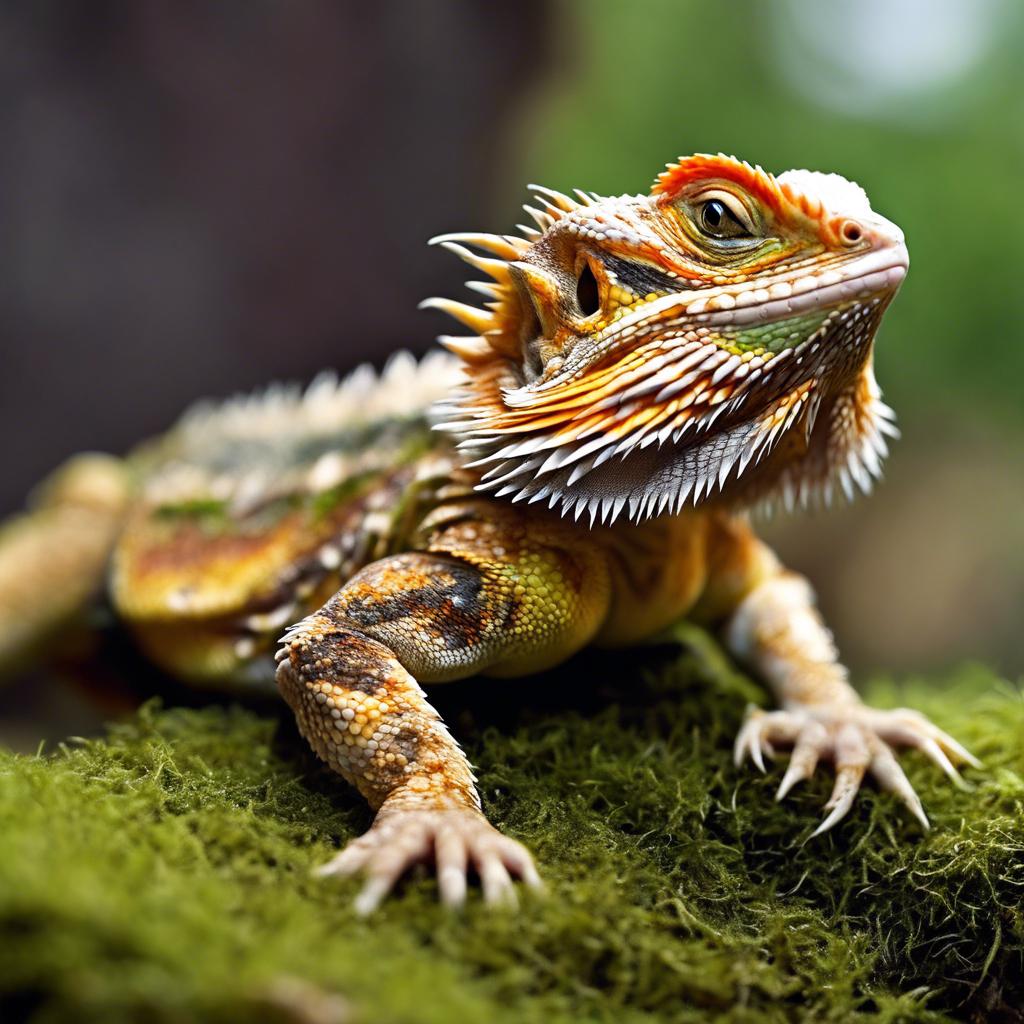Bearded dragons are popular reptile pets known for their unique appearance and docile nature. These reptiles are native to Australia and have become increasingly popular as pets due to their low maintenance requirements and friendly demeanor. One of the most important aspects of caring for a bearded dragon is providing them with a balanced diet that meets their nutritional needs.
A balanced diet is crucial for the overall health and well-being of bearded dragons. These reptiles require a combination of protein, vegetables, fruits, and calcium-rich foods to thrive. Providing a varied diet ensures that they receive all the necessary nutrients to support their growth, immune system, and organ function. While commercial bearded dragon pellets are available, it is recommended to supplement their diet with fresh foods to provide a more natural and diverse range of nutrients.
Key Takeaways
- Bearded dragons are omnivorous reptiles that require a balanced diet of insects, vegetables, and fruits.
- Moss is a type of plant that can be found in various environments, but not all types of moss are safe for bearded dragons to eat.
- Safe types of moss for bearded dragons include sphagnum moss, pillow moss, and frog moss.
- Moss can provide some nutritional value for bearded dragons, such as hydration and fiber, but it should not be a staple in their diet.
- Feeding too much moss to bearded dragons can lead to digestive issues and potential poisoning, so it should be given in moderation and with caution.
What is Moss and Can Bearded Dragons Eat It?
Moss is a type of small, soft plant that typically grows in damp or shady environments. It is characterized by its dense growth and ability to retain moisture. Moss can come in various forms, including sheet moss, sphagnum moss, and cushion moss. It is commonly used in gardening and terrariums for its aesthetic appeal and ability to retain moisture.
The question of whether bearded dragons can eat moss is a common one among reptile owners. While moss may seem like a natural food source for these reptiles due to its presence in their natural habitat, it is important to consider the specific type of moss before feeding it to them.
Types of Moss Safe for Bearded Dragons
Not all types of moss are safe for bearded dragons to consume. Some types may contain toxins or chemicals that can be harmful to their health. However, there are certain types of moss that are safe for bearded dragons to eat in moderation.
1. Sheet Moss: Sheet moss is a type of moss that grows in dense, flat sheets. It is commonly used in terrariums and is safe for bearded dragons to consume. Sheet moss is rich in fiber and can provide some additional hydration to these reptiles.
2. Sphagnum Moss: Sphagnum moss is a type of moss that is known for its ability to retain moisture. It is often used in reptile enclosures to create a humid environment. While sphagnum moss is safe for bearded dragons to come into contact with, it is not recommended to feed it to them as it can cause digestive issues if ingested in large quantities.
3. Cushion Moss: Cushion moss is a type of moss that forms dense, cushion-like clumps. It is safe for bearded dragons to consume in small amounts. Cushion moss provides some additional hydration and fiber to their diet.
Nutritional Value of Moss for Bearded Dragons
Moss can provide some nutritional benefits to bearded dragons when consumed in moderation. It is a good source of fiber, which aids in digestion and helps prevent constipation. Additionally, certain types of moss, such as sheet moss, can provide some hydration due to their ability to retain moisture.
However, it is important to note that the nutritional value of moss is relatively low compared to other foods that should make up the majority of a bearded dragon's diet. While it can be a beneficial addition to their diet, it should not replace staple foods such as insects, vegetables, and fruits.
Risks of Feeding Moss to Bearded Dragons
Feeding the wrong type of moss or feeding moss in excessive amounts can pose risks to the health of bearded dragons. Some types of moss may contain toxins or chemicals that can be harmful when ingested. Additionally, feeding too much moss can lead to digestive issues such as impaction.
It is crucial to ensure that the moss being fed to bearded dragons is safe and free from any potential contaminants. It is recommended to purchase moss from reputable sources and avoid collecting it from the wild, as it may be exposed to pesticides or other harmful substances.
How Much Moss Should Bearded Dragons Eat?

While moss can be included as a small part of a bearded dragon's diet, it should not make up a significant portion of their meals. The majority of their diet should consist of staple foods such as insects, vegetables, and fruits.
As a general guideline, moss should only make up around 5-10% of a bearded dragon's overall diet. This means that it should be offered sparingly and in small amounts. Feeding too much moss can lead to digestive issues and potentially impact their overall health.
Alternatives to Moss for Bearded Dragons
If you are looking for alternative foods to feed your bearded dragon instead of moss, there are several options that can provide similar nutritional benefits. These include:
1. Leafy Greens: Leafy greens such as kale, collard greens, and dandelion greens are excellent sources of vitamins and minerals for bearded dragons. They are low in calories and high in fiber, making them a healthy addition to their diet.
2. Vegetables: Bearded dragons can also benefit from a variety of vegetables such as bell peppers, carrots, and squash. These vegetables provide essential nutrients and can be offered raw or lightly cooked.
3. Fruits: Fruits should be fed in moderation due to their high sugar content, but they can still be included as a treat. Some safe fruits for bearded dragons include berries, melons, and apples.
Bearded Dragon Care: Tips for Feeding Moss
If you decide to feed moss to your bearded dragon, it is important to follow some guidelines to ensure their safety and well-being:
1. Choose Safe Moss: Only feed your bearded dragon types of moss that are known to be safe for consumption, such as sheet moss or cushion moss. Avoid feeding them sphagnum moss, as it can cause digestive issues.
2. Clean and Prepare Moss: Before feeding moss to your bearded dragon, make sure to clean it thoroughly to remove any potential contaminants. Rinse it with water and allow it to dry before offering it to your reptile.
3. Offer in Moderation: Moss should only make up a small portion of your bearded dragon's diet. Offer it sparingly and in small amounts, ensuring that it does not exceed 5-10% of their overall diet.
4. Monitor for Digestive Issues: Keep an eye on your bearded dragon after feeding them moss. If you notice any signs of digestive issues such as bloating, constipation, or diarrhea, discontinue feeding them moss and consult with a veterinarian.
Signs of Moss Poisoning in Bearded Dragons
Feeding toxic or contaminated moss to bearded dragons can lead to poisoning and potentially serious health issues. It is important to be aware of the signs of moss poisoning in these reptiles, which may include:
1. Loss of appetite
2. Lethargy
3. Diarrhea
4. Vomiting
5. Difficulty breathing
6. Seizures
If you suspect that your bearded dragon has ingested toxic moss or is showing any signs of poisoning, it is crucial to seek immediate veterinary care.
Can Bearded Dragons Eat Moss?
In conclusion, while certain types of moss can be safe for bearded dragons to consume in moderation, it is important to exercise caution when feeding them this plant material. Some types of moss may contain toxins or chemicals that can be harmful to their health, while others may cause digestive issues if ingested in large quantities.
Moss should only make up a small portion of a bearded dragon's diet, with the majority consisting of staple foods such as insects, vegetables, and fruits. It is always recommended to consult with a veterinarian before introducing any new foods to your bearded dragon's diet to ensure their safety and well-being.
If you're wondering whether bearded dragons can eat moss, you might also be interested in learning about the safety of Pothos plants for these reptiles. Pothos plants are a popular choice for terrariums, but are they safe for bearded dragons? Find out in this informative article from Reptile Wizard: Are Pothos Safe for Bearded Dragons?
FAQs
What is a bearded dragon?
A bearded dragon is a type of lizard that is commonly kept as a pet. They are native to Australia and are known for their distinctive beard-like appearance.
Can bearded dragons eat moss?
No, bearded dragons should not eat moss. Moss is not a part of their natural diet and can cause digestive issues if ingested.
What should bearded dragons eat?
Bearded dragons should primarily eat a diet of insects, such as crickets and mealworms, as well as leafy greens and vegetables.
What are the risks of feeding bearded dragons moss?
Feeding bearded dragons moss can lead to digestive issues, such as impaction, which can be life-threatening. Moss can also contain harmful bacteria and parasites.
What are some safe foods for bearded dragons?
Safe foods for bearded dragons include crickets, mealworms, leafy greens such as kale and collard greens, and vegetables such as carrots and squash.
Can bearded dragons eat other types of plants?
Yes, bearded dragons can eat a variety of plants, but it is important to research which ones are safe for them to consume. Some safe options include dandelion greens, mustard greens, and butternut squash.

